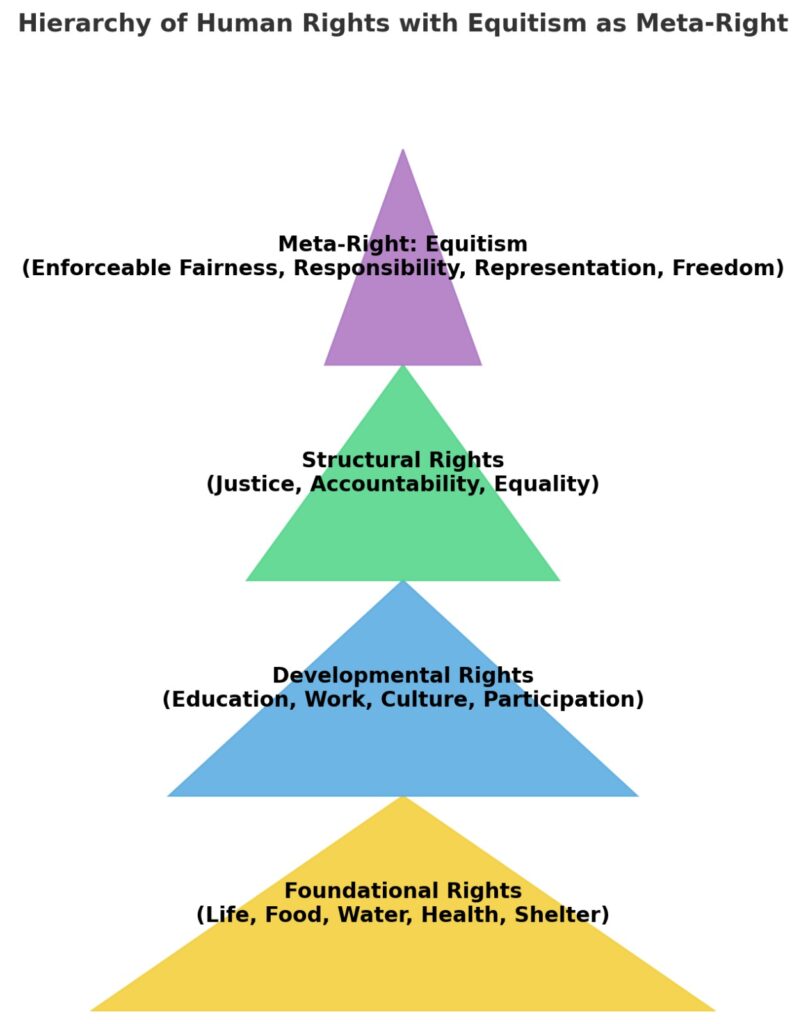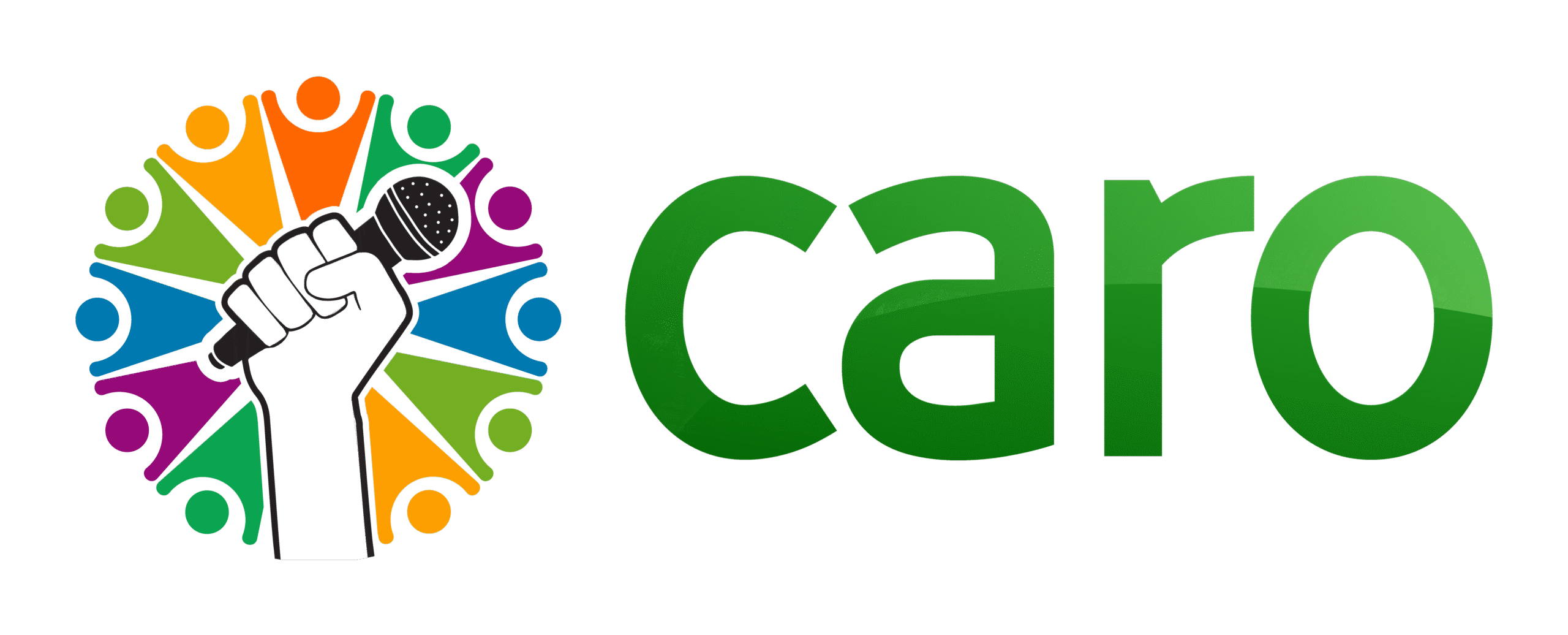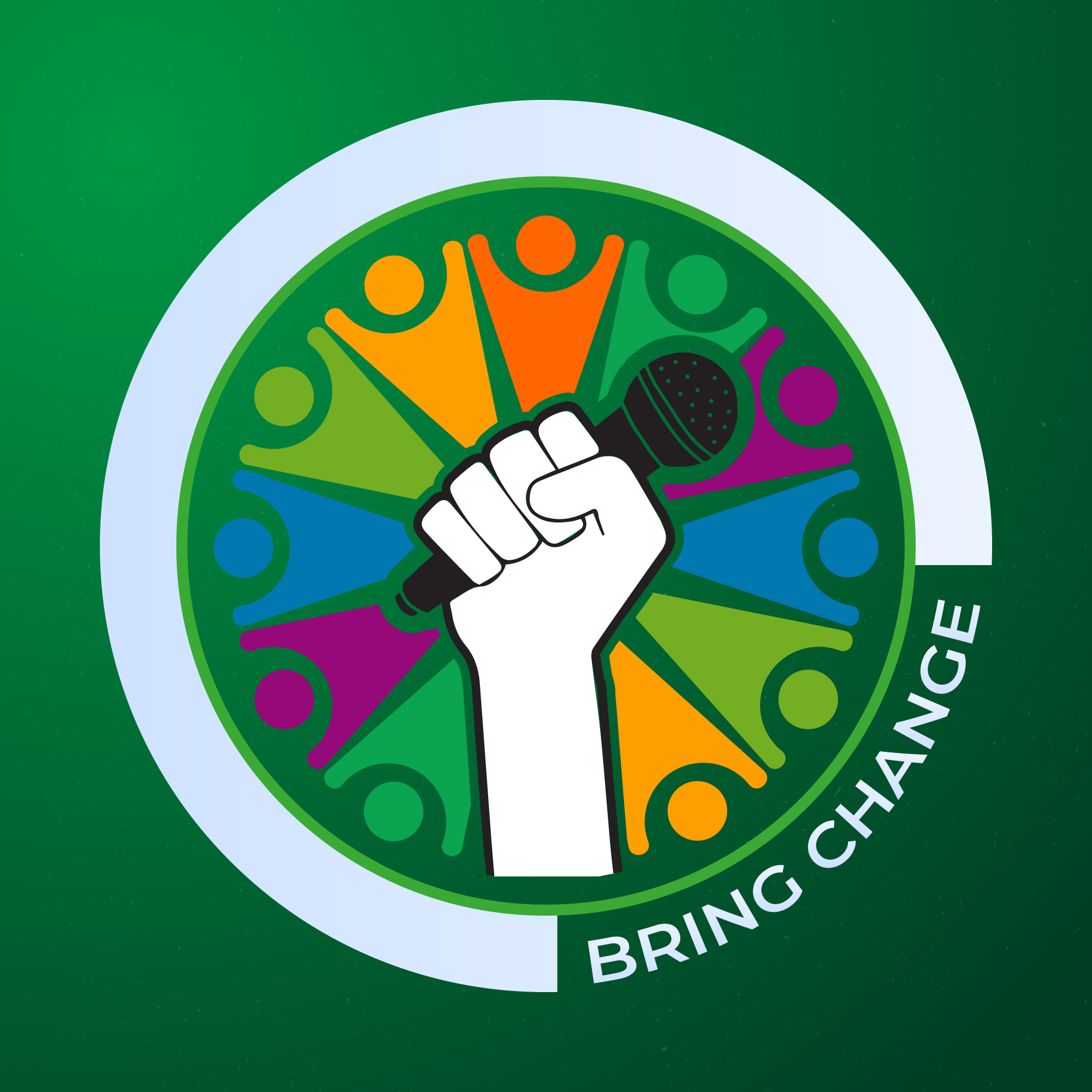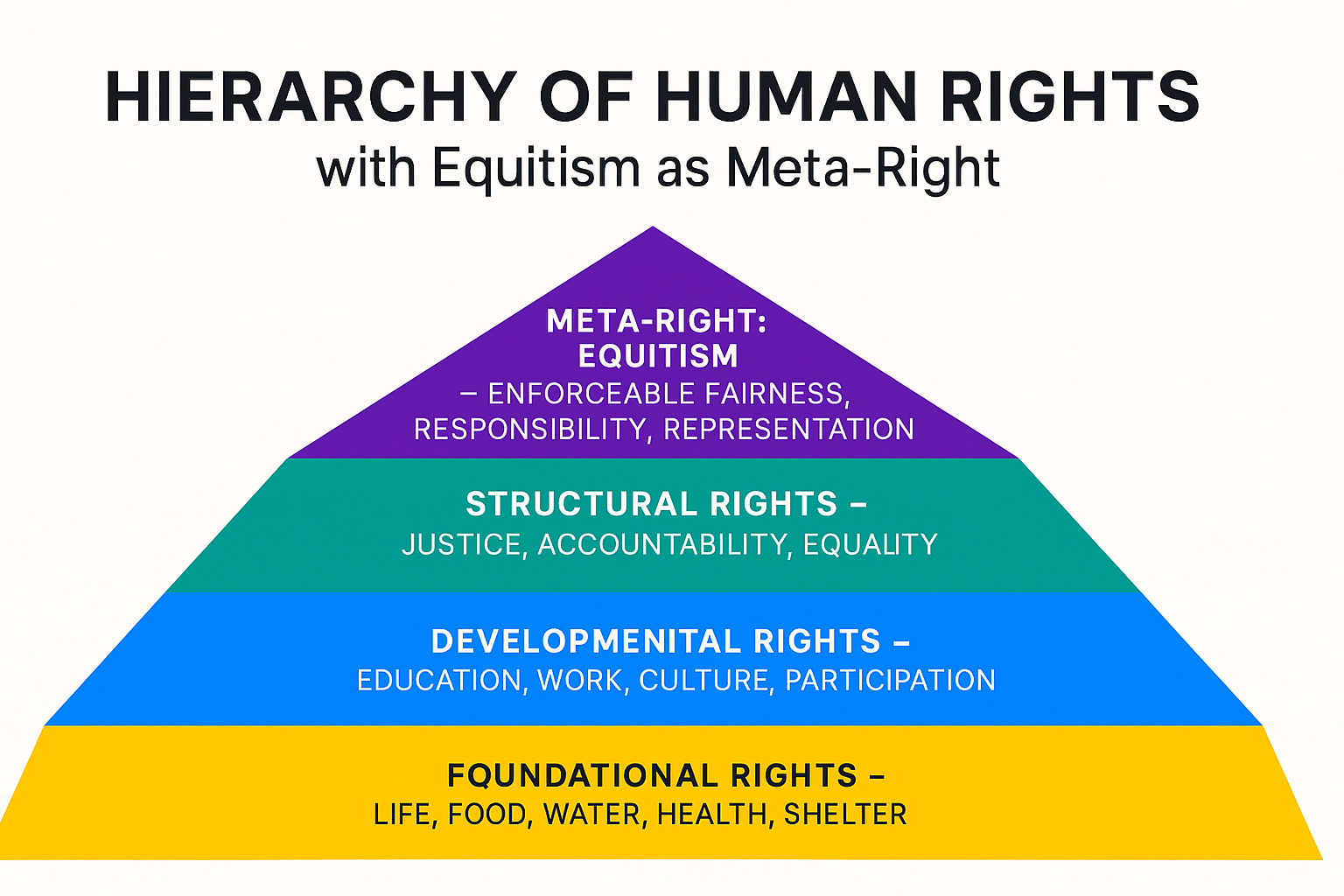When we talk about human rights, the conversation usually turns to things like health, education, housing, or freedom. These are essential—no human life is complete without them. But there is something deeper that is often overlooked: the system itself.
Because what good is the right to health if hospitals are corrupt?
What good is the right to education if schools are captured by politics?
What good is freedom if shifting majorities or powerful elites can strip it away?
This is where Equitism comes in.
The Current Hierarchy of Rights
Most constitutions and international frameworks recognize three layers of rights:
- Foundational Rights (Survival Needs)
- Life, food, water, shelter, health.
- Developmental Rights (Growth Needs)
- Education, work, culture, participation.
- Structural Rights (System Needs)
- Justice, equality before the law, and non-discrimination.
These are critical. But they remain fragile because they rely on systems that are often unenforceable.
Equitism as a Meta-Right
Equitism is not just another item to add to the list of rights. It is the meta-right that ensures all other rights are real.
“Equitism” means:
- Fairness enforced → rights aren’t aspirational, they are lived.
- Responsibility counts → power comes with accountability, not privilege.
- Representation ensured → voices matter proportionally, not just numerically.
- Freedom protected → no shifting majority can strip it away.
Put simply: Equitism is the right to structural fairness.
A New Rights Hierarchy
If we redraw the human rights ladder, it looks like this:
- Foundational Rights → Life, food, water, shelter, and health.
- Developmental Rights → Education, work, participation, culture.
- Structural Rights → Justice, accountability, and equality before the law.
- Meta-Right: Equitism → The right to live under a system where fairness is enforceable, responsibility is tied to power, representation is guaranteed, and freedom is structurally protected.
Without this meta-right, the other rights remain fragile promises.

Why This Matters Now
We live in a century defined by crises: climate injustice, AI governance, geopolitical instability, and widening inequality. Traditional rights are being challenged not because they are wrong, but because they lack enforceable architecture. Equitism offers that architecture. It upgrades democracy and governance so that rights are not optional ideals but guaranteed experiences.
The Future of Rights
The next frontier in human rights is not just about adding more items to the list—it’s about ensuring that every right already on the list can actually be delivered. That requires one new universal declaration: Every human being has the right to live under a system where fairness is enforceable. This is the essence of Equitism. And it may be the most important right of all.
Closing Line:
Without equitism, rights remain paper promises. With it, they become living guarantees.




